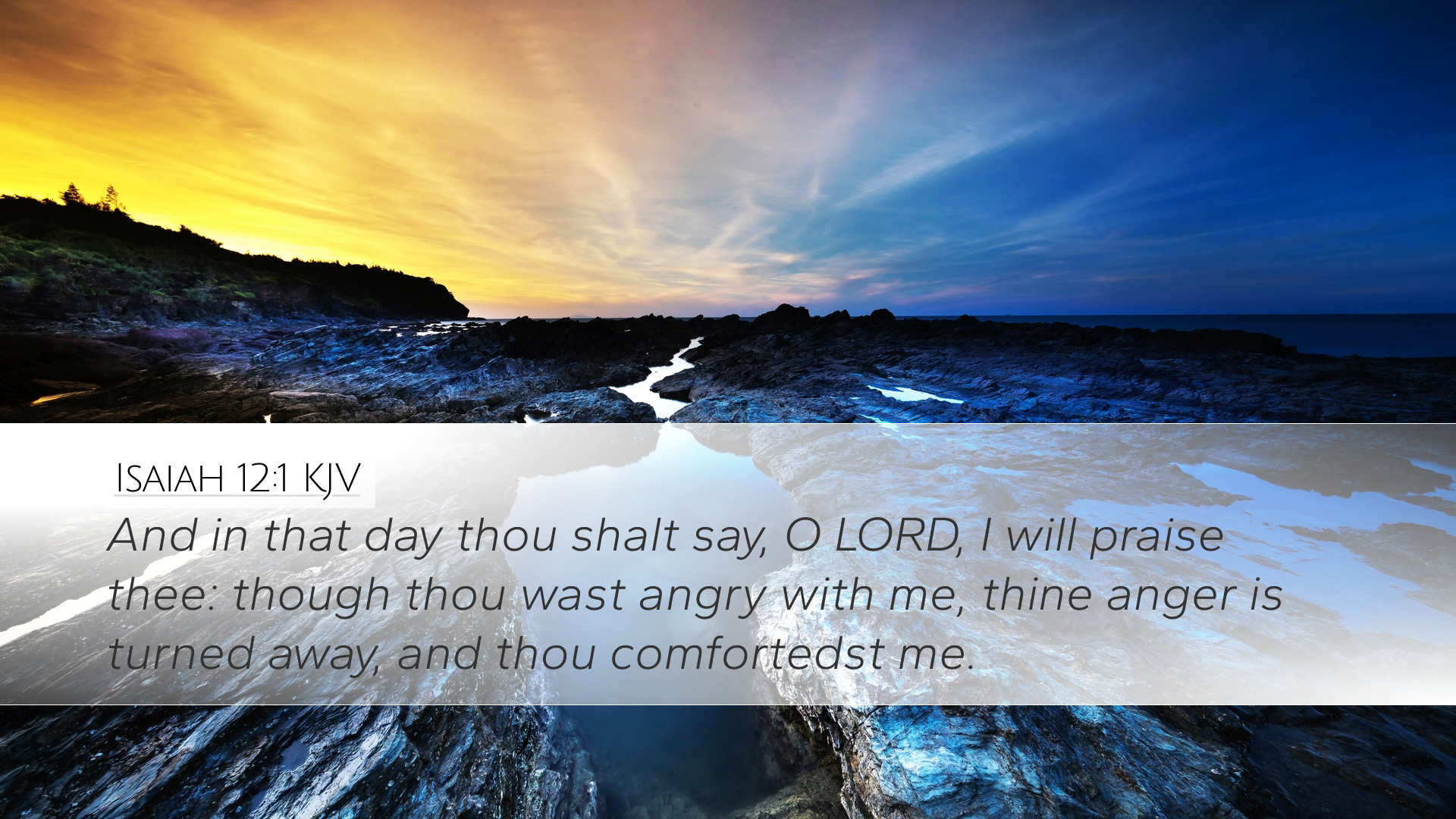Commentary on Isaiah 12:1
Verse: "And in that day thou shalt say, O Lord, I will praise thee: though thou wast angry with me, thine anger is turned away, and thou comfortedst me."
Introduction
Isaiah 12 marks a significant shift in the tone of the prophecy, moving from a focus on judgment and lamentation to one of gratitude and praise. This verse serves as a declaration of God's faithfulness and grace. In this commentary, we will explore the implications of this verse, drawing insights from public domain commentaries by Matthew Henry, Albert Barnes, and Adam Clarke.
Contextual Background
Isaiah's Prophetic Context: The preceding chapters of Isaiah primarily deal with the judgment God would inflict upon Israel for their sins. However, Isaiah 12 presents a profound statement of hope and redemption. This chapter is often associated with the post-exilic scenario, where the people of Israel, having returned from Babylonian captivity, are restored and reminded of God's mercy.
Analysis of Key Phrases
-
"And in that day": This phrase signifies a future time of salvation and comfort. As Albert Barnes highlights, "that day" refers to the time when the people recognize and experience the deliverance and grace of God.
-
"Thou shalt say, O Lord, I will praise thee": This declaration represents a turning point in the relationship between God and His people. Matthew Henry notes that the act of praising God is a natural response to His mercies and restoration.
-
"Though thou wast angry with me": The acknowledgment of God's anger indicates a recognition of their past sins and failures. Adam Clarke emphasizes the importance of confession, suggesting that remembrance of God's anger leads to a deeper appreciation of His grace.
-
"Thine anger is turned away": This phrase reflects the theme of reconciliation. Henry elaborates that God’s anger, which had led to judgment, has now been replaced by comfort and a renewed relationship.
-
"Thou comfortedst me": The comfort provided by God serves as a profound assurance for the believer. Barnes asserts that God not only forgives but also restores, giving strength to the faith of His people.
Theological Implications
The verse encapsulates the essence of God's forgiveness and the dynamic relationship between divine justice and mercy. It emphasizes that God, while just and righteous in His anger, is also loving and compassionate in His forgiveness. Clarke mentions that the recognition of our sins should lead us to a place of humility and gratitude, which fosters true worship.
Pastoral Applications
This verse can serve as a powerful reminder for pastors and church leaders regarding the transformational power of acknowledgment, repentance, and praise. It teaches that congregations should be led to recognize their failings before God but also be reminded of the divine grace that is available to them.
- Encouraging Praise: Encourage congregants to express their heartfelt praise to God, acknowledging His work in their lives, especially after receiving forgiveness.
- Emphasizing Forgiveness: Use this verse to preach on the nature of God’s forgiveness which brings comfort and reassurance.
- Leading Remembrance: Create opportunities within church services for individuals to reflect on their journey with God, recognizing both His anger at sin and His grace in forgiveness.
Conclusion
Isaiah 12:1 serves as a profound declaration of praise and recognition of God's merciful restoration. Drawing from the insights of Henry, Barnes, and Clarke, we see that the themes of God's anger, forgiveness, and comfort culminate in a response of worship and gratitude. As we reflect on this verse, may we be inspired to both acknowledge our shortcomings and celebrate the grace that leads us to praise God with all our hearts.


